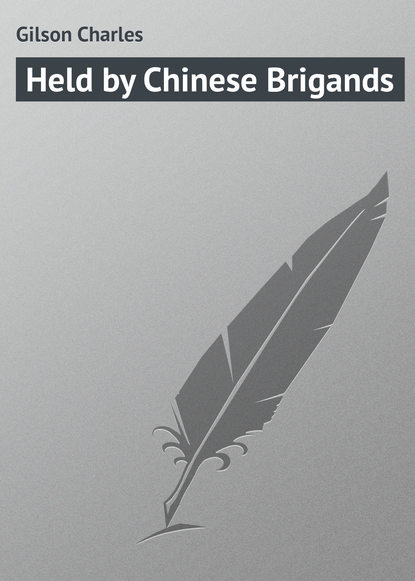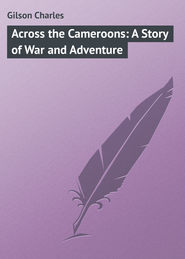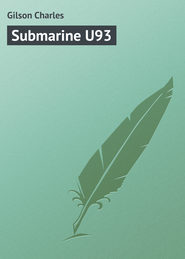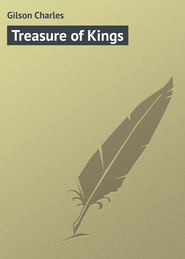По всем вопросам обращайтесь на: info@litportal.ru
(©) 2003-2025.
✖
Held by Chinese Brigands
Настройки чтения
Размер шрифта
Высота строк
Поля
The man looked perplexed. He stood for a moment stroking his chin, as if he was undecided what to do. Then Ling laid one of his great hands upon the man's shoulder.
"I will tell you where he is," said he. "He left here in great haste-and unexpectedly. He has gone upon a journey-a long journey. He did not say where he was going, for two reasons: firstly, he had no time to tell us; secondly, I do not believe he knew. And so, my friend, we can give you no information likely to be of value. Who are we, that we should know all things, that we should be able to solve the riddles of the universe? We are poor mortals, with little wisdom and great hopes. We arrange our lives in accordance with our own ideas, and those ideas are but guess-work, the product of imagination. We know nothing. We live in the dark. The printed page of the book of mysteries lies open before us, but we are blind and unable to read. Could I soar higher than an eagle, traversing the eternal plains of space, I might be able to tell you something of Men-Ching. As it is, I cannot." And Ling, with a shrug of the shoulders, turned away.
The man regarded his broad back in amazement. He could make neither head nor tail of what he had been told. And at the same time he was in a dilemma: he could do nothing without Men-Ching; in a great city like Canton-with which he was not well acquainted-he had no idea where to look for him.
"It is of the greatest importance," said he, "that I find Men-Ching without delay. I have news for him."
Ling whipped round at once.
"News," he exclaimed. "I tell you, my good man, you may be perfectly frank with us. We are in the secret."
"You are!" cried the man.
"All four of us," said Ling, whose capacity for falsehood appeared to be in proportion to his other faculties.
The man looked in surprise from Ling to Ah Wu, from Yung How to Frank.
"I see you doubt me," continued Ling. "Permit me to enlighten you. You are one of Cheong-Chau's band-that is evident from your coat. You came south with Men-Ching in order to convey certain letters to Hong-Kong. Cheong-Chau demands a ransom of twenty thousand dollars as the price of the lives of three European prisoners whom he holds in his hands. This sum of money is to be conveyed by junk, before the new moon, to the Glade of Children's Tears. It has already been arranged between my very good friend, Cheong-Chau, and Men-Ching, that we four, accompanied by Men-Ching himself, proceed to the Glade of Children's Tears in order to take possession of the money. I am surprised that Men-Ching did not inform you of all this. I presume you no longer doubt me?"
"I cannot doubt you," said the man. "You know more of the matter than myself. I was aware that Cheong-Chau had agents in Canton, but I was never informed who they were. Perhaps you will be so good as to advise me what to do."
Ling stroked his black moustache. He appeared to be deep in thought.
"If I were you," said he, "I should leave the matter in Men-Ching's hands. He cannot be far away. If I were you I should return at once to Cheong-Chau."
"That is not necessary," said the man.
Ling looked up quickly, lifting his eyebrows. For a moment his eyes flashed, suggesting something of the fierce sudden intelligence of a beast of prey that scents its quarry.
"How do you mean?" he rapped out.
"It is not necessary," said the man, "that I return to Cheong-Chau, for the simple reason that Cheong-Chau himself has come to me."
Ling closed his mouth with a snap.
"Ah!" he exclaimed. "So Cheong-Chau is-in Canton?"
"He approaches Canton," said the man. "That is the information that I desired to give to Men-Ching."
"He approaches Canton," repeated Ling. "This is indeed interesting! And can you tell me why Cheong-Chau approaches Canton?"
"Yes," said the man. "One of his prisoners has escaped."
At the word Frank Armitage caught his breath. With a great effort of will he managed to control himself. He stared hard at the opium bowl, filled with the sticky, treacle-like substance, that was immediately in front of him.
The boy felt like a helpless bird, imprisoned in a cage of poisonous snakes. He could not be blind to the peril in which he stood. Hardly a minute passed when it was not made evident to him that his life hung upon a thread. At any moment he might be discovered, and then, in the hands of such a man as Ling, he could hope for little mercy.
"What you tell me interests me vastly," said Ling, still addressing himself to the brigand. "You have no idea how annoyed I am. And so one of the prisoners has escaped! I think you had best return to Cheong-Chau, taking with you a written message from my friend, Ah Wu."
Ah Wu looked up at Ling in something like despair. The fat proprietor of the opium den, at that moment, bitterly regretted that he had ever had anything to do with the business. He feared Cheong-Chau, but he was terrified of Ling. He now found himself between the hammer and the anvil.
"What do you wish me to do?" he asked, in a weak voice. "What sort of a message am I to send to Cheong-Chau?"
"Tell him the truth," said Ling. "Tell him that Men-Ching called here this morning, and soon afterwards departed unexpectedly, in a great hurry. Say that you presume he has gone to Hong-Kong. He told you, I believe, that the letters were safe."
And even as Ling said these words he placed one of his hands upon the pocket of his coat-and they all heard the crinkling sound of the stiff rice paper upon which the letters had been written. Both Yung How and Frank regarded Ling in astonishment. The man was beyond doubt an accomplished and unmitigated villain. He was never at a loss. As for Ah Wu, very meekly he crossed the room to the writing-desk where he kept his accounts. There he wrote a letter, handling with skill the long Chinese ink-brush. And as he wrote Ling strolled up to him, glanced over his shoulder, and strolled away. Then Ah Wu folded the letter and sealed it and gave it to Cheong-Chau's man, who a few moments afterwards left the opium den.
No sooner was he gone than Ling bolted the door and came back quickly into the room.
"This," said he, "is going to be a touch-and-go affair. It will be an open question now who gets to the Glade first: Cheong-Chau or I. You three shall help me. I take it, you prefer to be on the winning side. I shall need the assistance of every one of you. You will have your fair share of the plunder, more than you would have got from Cheong-Chau-I promise you that. But I have warned you once, and I warn you again: play me false, and I deal with you as I dealt with Men-Ching. It is already late in the afternoon. There is much to be done to-night. Ah Wu, you must keep the place closed; you must put up a notice outside saying that no customers will be admitted. Tell me, is there a back entrance?"
Ah Wu nodded his head.
"Good!" exclaimed Ling. "You and I must get the body of that fool out of the way. We shall be able to do that as soon as it is dark. As for these two, they can remain here till we return. I care not how many men Cheong-Chau has brought with him. I know how to settle him. The man is an opium fiend, and by opium he shall fall. Now then, Ah Wu, are we to be friends or foes?"
"Friends," said Ah Wu.
"Then swear friendship."
And Ah Wu swore, with a hand uplifted, by the Five Sacred Books.
And then Yung How swore fidelity to Ling, who rounded upon Frank.
"And you, my little smooth-faced infant, whom I have truly taken to my heart, you have not told me yet your name?"
"Ah Li," said Frank, who for some time had been prepared for such a question.
"And you also swear?"
And Frank swore, following the example of Ah Wu and Yung How, and using the same words to be faithful to the mighty Ling. And as he made the declaration he satisfied his conscience that he attached no more importance to the words than did Ling to the life of the man whom he had killed.
CHAPTER XVI-OF THE REPENTANCE OF YUNG HOW
Thus it was that they became the unwilling servants of Ling. They had no option but to obey him. By reason of his gigantic strength, Ling was the master of the situation.
Ah Wu was as crafty as a fox. All his life he had been connected with the opium business; and an opium den is a place where a Chinese may gain a very intimate knowledge of his fellow-men. He learns much in connection with human character. Whatever may have been the feelings of Frank Armitage and Yung How, the proprietor of the opium den had not the least doubt that in agreeing to follow Ling they had taken the wisest course.
During the few hours that elapsed between the departure of the brigand and sunset, they were given a further opportunity of observing the singular abilities of this inhuman monster. There is no doubt that the man might have succeeded in almost any walk of life. His plans were not only elaborate, and so carefully laid that they allowed for almost every possible contingency, but they were made rapidly without a moment's hesitation.
In the course of the afternoon Ah Wu's three attendants arrived, gaining entrance into the opium den by means of the back door. These were sent upon various errands, from which they could not possibly return until after dark. As soon as Ling himself had conveyed the mortal remains of the unfortunate Men-Ching from the opium den, the place was to be open, customers were to be admitted. These customers were to be entertained by Yung How until Ah Wu himself returned. The establishment was to remain open, day and night, throughout the next few days. Ling made no secret of his intention to decoy Cheong-Chau to the opium den, where he was to be drugged, whilst Ling gained possession of the ransom, which by that time should have arrived from Hong-Kong.
About the middle of the afternoon Ling went out, and was absent about twenty minutes. This in itself is sufficient proof of the self-confidence of the man. It was within the power of Ah Wu, Yung How, or the youth who had called himself "Ah Li," to betray him. These three were left alone in the opium den with the horrid evidence of Ling's guilt.
During his absence, Ling posted his letters. The night boat left Canton at eight o'clock, and Ling himself took the letters on board. He returned to the opium den, and was admitted at the back door by Ah Wu himself. He did not seem in the least curious as to whether they had been discussing him whilst he was away.
Soon after nightfall, Ling and Ah Wu departed on their gruesome errand, taking with them the body of Men-Ching. This they secreted under the hood of a double ricksha, and Ah Wu, much to his dismay, was made to seat himself beside a lifeless companion. As for Ling, he stripped himself to the waist, coiled his pigtail round the top of his head, after the manner of a coolie, and himself drew the ricksha through the dark, narrow streets of the great city. Frank and Yung How stood at the small back door of the opium den when Ling took his departure. They heard the wheels rattling over the cobble-stones of the streets, and then the ricksha disappeared in the darkness, and with it that which had formerly been Men-Ching, Cheong-Chau's second-in-command.
Yung How and Frank returned to the main room, where they lighted the lamps, and shortly afterwards the three attendants returned. The establishment was then opened, and it was not long before customers began to arrive. Most of these were regular patrons of Ah Wu's, who knew how to look after themselves. Having ordered what they wanted, they disposed themselves on couches in the lower room. There they smoked opium, drank samshu, and nodded off to sleep.









